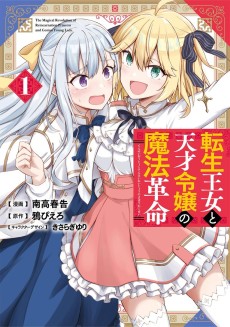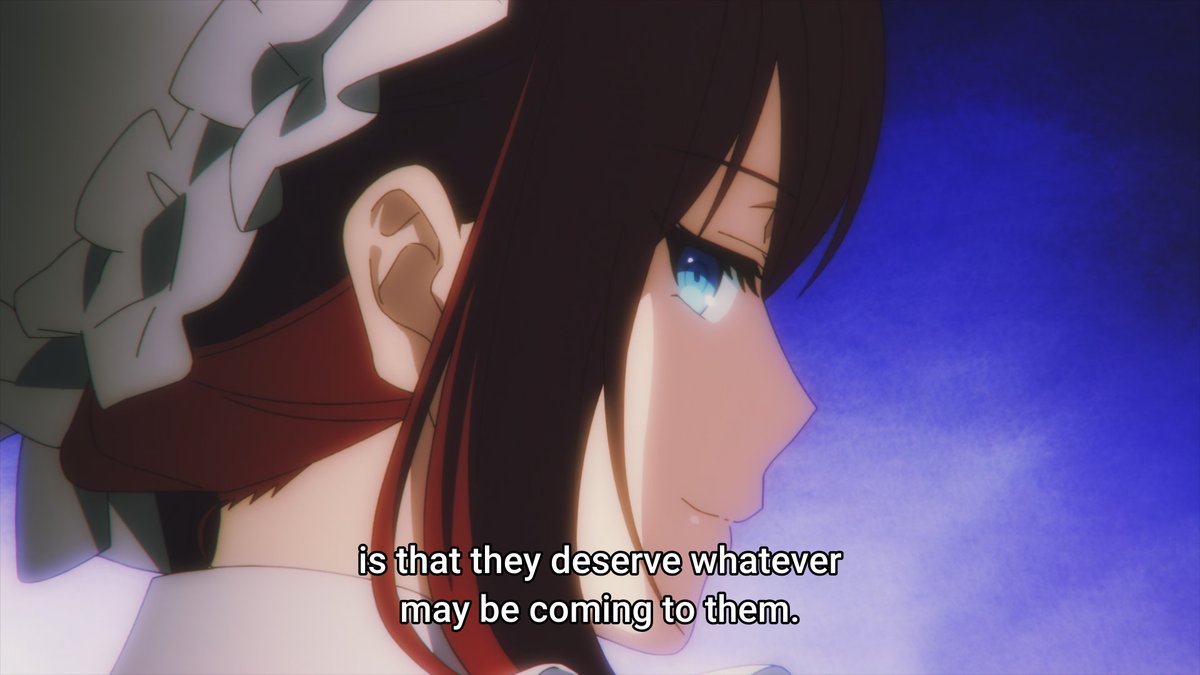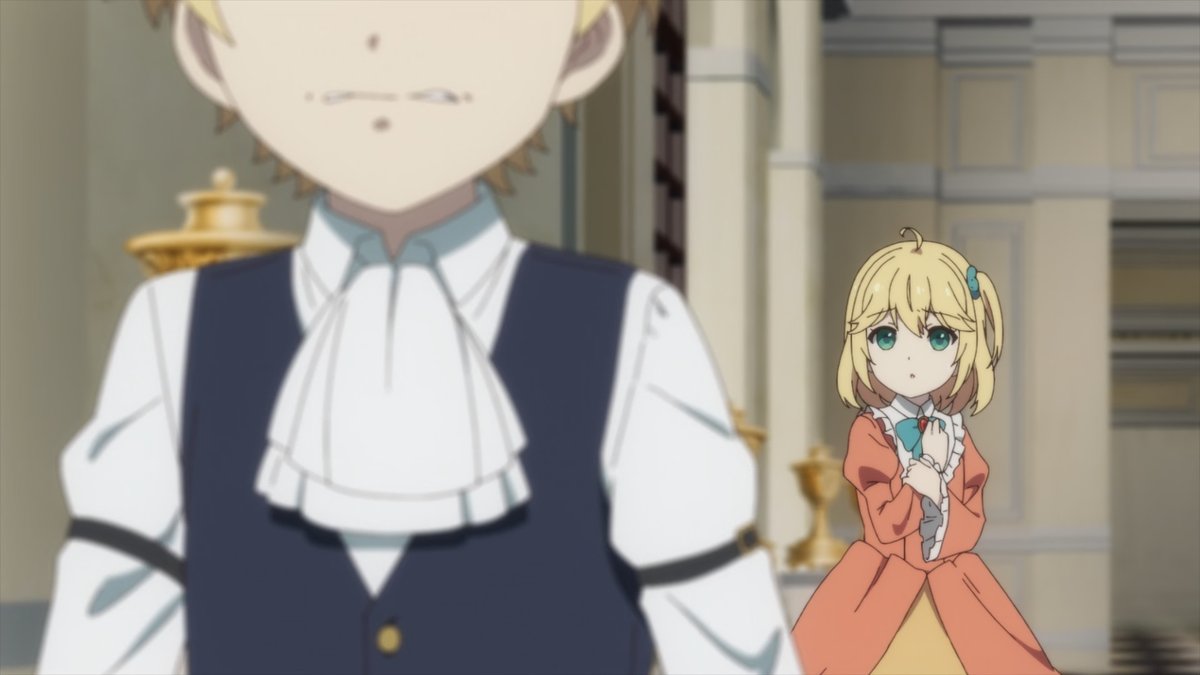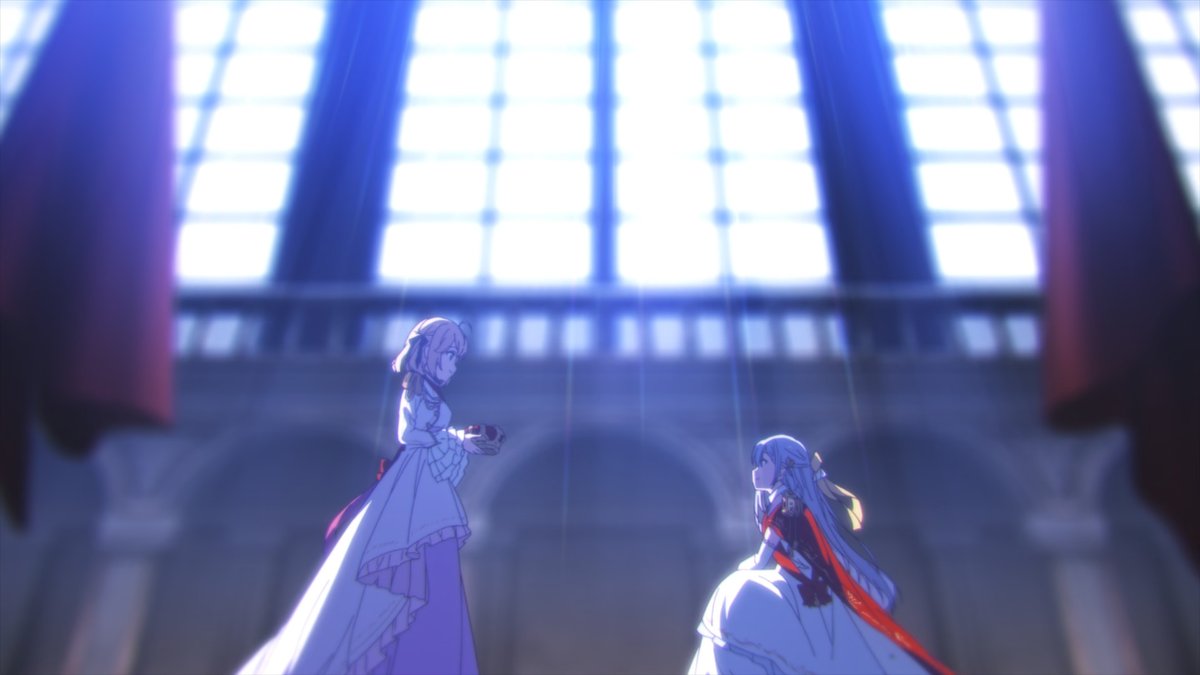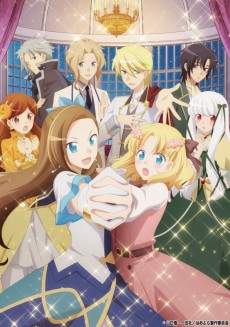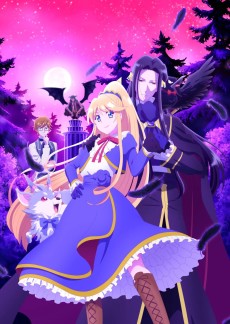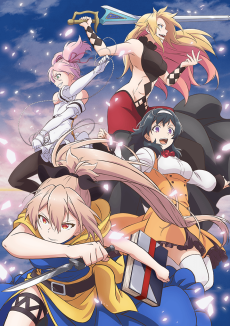TENSEI OUJO TO TENSAI REIJOU NO MAHOU KAKUMEI
STATUS
COMPLETE
EPISODES
12
RELEASE
March 22, 2023
LENGTH
24 min
DESCRIPTION
Despite her supposed ineptitude with regular magic, Princess Anisphia defies the aristocracy’s expectations by developing “magicology,” a unique magical theory based on memories from her past life. One day, she witnesses the brilliant noblewoman Euphyllia unjustly stripped of her title as the kingdom’s next monarch. That’s when Anisphia concocts a plan to help Euphyllia regain her good name-which somehow involves them living together and researching magic! Little do these two ladies know, however, that their chance encounter will alter not only their own futures, but those of the kingdom...and the entire world!
(Source: Yen Press)
CAST

Anisphia Wynn Palettia

Sayaka Senbongi

Euphyllia Magenta

Manaka Iwami

Ilia Coral

Ai Kakuma

Lainie Cyan
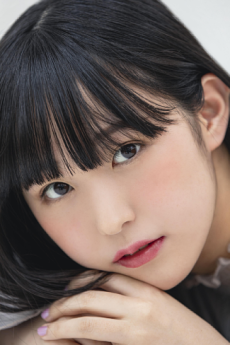
Hina Youmiya

Tilty Claret

Yuu Sasahara

Algard Von Palettia
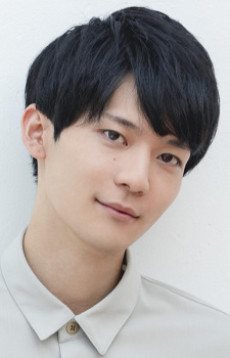
Shougo Sakata

Sylphine Maise Palettia

Sachiko Kojima

Lumielle Palettia
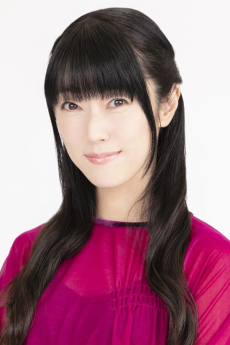
Rie Kugimiya

Orphans Il Palettia
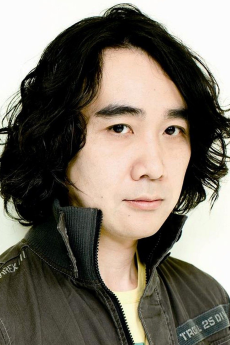
Kenji Hamada
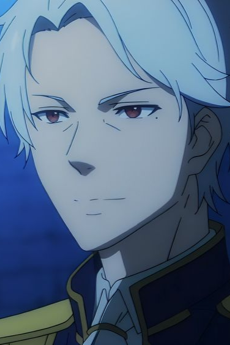
Grantz Magenta
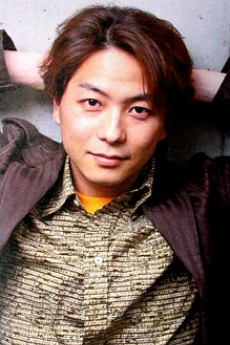
Tomohiro Tsuboi
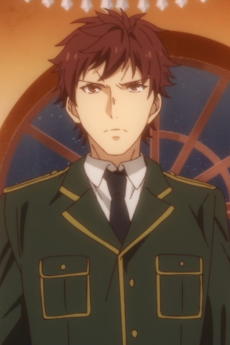
Navre Sprout
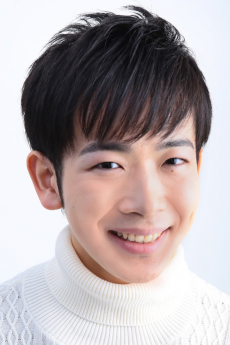
Yuu Okano

Dragus Cyan

Motoki Sakuma

Chartreuse Hakushaku

Wataru Tsuyuzaki

Moritz Chartreuse
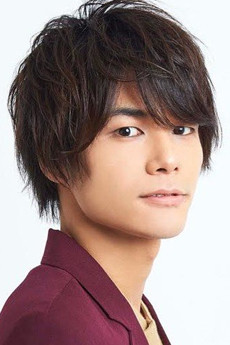
Taku Yashiro

Tomas Gana

Yuu Wakabayashi

Narrator

Rie Kugimiya

Maid

Arisa Kinami

Kuma-gata Monster

Takaki Ootomari

Reijou

Saima Nakano

Juushin
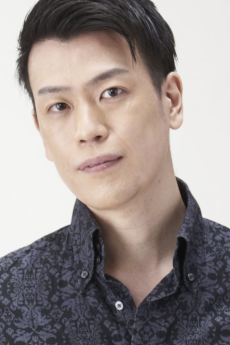
Koutarou Shinohara

Mahou-shou Yakunin A
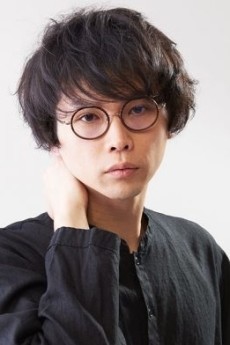
Hiromichi Tezuka

Saran Meckie

Hiromichi Tezuka

Reijou

Miho Hayashi

Jijuuchou

Saiko Moriya

Kanbu A

Hiromichi Tezuka
EPISODES
Dubbed

Not available on crunchyroll
RELATED TO TENSEI OUJO TO TENSAI REIJOU NO MAHOU KAKUMEI
REVIEWS

Mcsuper
80/100A Very Pleasantly Surprising Isekai GemContinue on AniListIn an era riddled with isekai with boring power fantasies, overpowered characters, and poor production, this anime was a gem of its genre, although this show is more disconnected from the isekai aspect, and more on the fantasy aspect. I will admit, when I saw this show announced, I thought it would be yet another generic isekai, but just with yuri. Seeing that Studio Diomedéa at the helm, and with their recent anime such as Futsal Boys, and Domestic Girlfriend, I wrote this one off entirely. I eventually did try it out, and following a premiere that stumbled out of the gates, it improved into something quite special, with impressive animation, characters, and thought-provoking themes.
Stories surrounding royalty always fall into the age old trope of in-fighting inside the palace, and a thirst for the throne and power. Instead, our main protagonist, Anisphia “Anis” Wynn Palletia, is one that seemingly does not care for ascending to the throne, despite being in the royal bloodline. One reason why that might be the case is that in a world filled with magic users, at least among royalty, she is incapable of using magic. Instead, she engages in research called “magicology”, using the world’s resources and her knowledge from her previous life. As she seemingly neglects her place in the royal scheme of things, she is seen as a heretic, and therefore, her brother, Algard, assumes the duties of royalty. At the outset, Algard is in a forced political marriage with Euphyllia Magenta, whom he barely knows.
With that, the theme of rebellion is presented for the first time in the show, as Algard spends time with another girl rather than his fiancée, and eventually denounces her in front of a huge crowd, calling off their marriage. This all happens in the first episode, and I’m sure that if you haven’t watched this show yet, you’re thinking to yourself how this is even good. It all seems like contrived drama, doesn’t it?
But then, Anisphia comes in, all carefree, to sweep Euphyllia off her feet, in more ways than one, as she flies away from the terrible scene with her on a broom, and gives her the role of being Anisphia’s assistant, which she agrees to.
Anisphia and Euphyllia have personalities that can be seen as polar opposites. Anisphia is a very happy go lucky girl who has excellent ideals around magic, whereas Euphyllia is struggling to fit into this casual atmosphere where no one is forced to be polite and ladylike, and can just have fun. In a way, the theme of rebellion shows itself yet again, as Euphyllia is rebelling against the very nature of her world, to change herself into finding her own purpose, to do the things that she wants, just like Anisphia. There’s a parallel to another anime, Lycoris Recoil, that I can sort of see here, with Anisphia resembling Chisato and Euphyllia resembling Takina, as the former breaks the latter out of her shell to push her to act and do things that she wants to do, not just following orders, like she’s done her whole life. Their dynamic was wonderful to see throughout the anime, as they go through the toughest of battles and emotions together.
To continue the discussion on rebellion, Algard, as polarizing and divisive as he was, ended up being quite a good character, and a villain who had some depth, and someone who allowed us to sympathize with. The world and its politics aren’t great. Its systems of prioritizing magic for the nobility is corrupt and was fully deserving to be broken down. Algard’s actions during this anime make him look like the villain, but he believed he was doing what needed to be done, which was overthrow the power dynamic in this world. He attempts to use his strength rather than change the policies slowly, and he’ll stop at nothing to achieve this goal. The ends justify the means for him, even if that means people need to be sacrificed to do so. Isekai series struggle with villain writing all the time, and while Algard, as decent of a character he was, he wasn’t exceptionally written in my opinion, but it’s most definitely a step in the right direction.
The side cast also added a lot to the cast as well. Tilty and Ilia were amazing characters who kept the main duo true to themselves, and pushed them towards a better relationship with each other.
Now, to the production side of things, the animation was generally very well done, with the fight scenes being exemplary, and the cinematography being amazing even outside of the fight choreography. The soundtrack was also very overlooked, and complimented the emotional and epic scenes very well. Studio Diomedéa was really punching above their weight here, and I never expected this studio to pull off something quite like this.
The main issue I did see with this show was the pacing, but it’s nothing too egregious, as the story was still generally quite decent overall. It felt a little fast at times, as it doesn’t feel like the world was really fleshed out to its fullest. While there was some world building aspects, it didn’t feel as intriguing as it could have been, in its political world building, or the monarchy in general. That said, the adaptation did what it had to, and I wasn’t disappointed at all.
Overall, this show has been quite a joy to watch, with its exemplary cast, solid animation, soundtrack, and themes. It’s a show I never expected to enjoy this much, and while there were some shortcomings, it was a great experience to watch and a great show to discuss about. The second half was quite polarizing among the anime community, but I came out with quite a positive view of it. I assure you, it’s more than just a plain old yuri anime, there was a lot of heart put into this adaptation, so if there’s anything to take away from this anime season, this would be a good choice to watch. I implore you, do give it a fair chance.

ZNote
85/100“The impossible is something you make possible!” ~AnisphiaContinue on AniList
During a festive gathering to celebrate the new graduations from the magical academy, Algard, the crown prince of Atland and betrothed to noblewoman Euphyllia, announces that their engagement is effectively annulled. Having been taken by the charms of a commoner girl named Lainie, he levies accusations at Euphyllia, leaving her horrifically disgraced and her social status effectively ruined. As everything is about to come to a catastrophic head (even moreso than it already had), the rebellious princess Anisphia crashes through the window on her magical tool broomstick and, reading the situation quickly, takes Euphyllia away and promises to set her free from her circumstances.
The Magical Revolution of the Reincarnated Princess and the Genius Young Lady, or MagiRevo for short, starts with these series of violent metaphorical (and in Anisphia’s case, literal) collisions. As the series unfolds over its twelve episodes, the picture as to how all the collisions were born, nurtured, and achieved their realization begin to take their shape. All of the show’s major players, from aristocrats like Anisphia, Euphyllia to Algard, to even the lower-class Lainie, are thrust into a conflict propelled by forces that they are unable to reconcile, left to the mercy of where their seemingly pre-ordained fate will lead them. In effect, the show “imprisons” its characters by robbing them of their sense of agency. And thus, the form of revolution is born – each will take their destiny by their own hands.
“Revolution” – what a word! It tends to be the stuff of textbooks in history class, of looking at history through a mirror darkly and unable to fully grasp the larger picture since we were not there ourselves. But we would be wise to remember that revolutions are not made up purely some grand-sweeping events that happened in a vacuum; they are the stuff of people. More specifically, they are the stuff of a people who have embodied or had to live with an angst laid by problems or situations that were perhaps far beyond their control. A confluence of anger, sadness, and standing at the precipice of uncertain tomorrows all intermingle in intense and perhaps violent ways, both individually and societally. MagiRevo is a series that spearheads both approaches, with each of the characters’ own stories and personal arcs serving both their personalized journeys and complementing the political story hanging over their kingdom.
These are characters that actually talk to one another as human beings rather than as placeholders, people with their own apprehensions, fears, ways of interpreting the situation, and actively communicating to try and parse out the best option available. Especially as Euphyllia now must come to terms with her own lack of station and becoming Anisphia’s assistant, she’s a girl who has effectively lost her compass. When placed against the highly-independent Anisphia, Euphyllia’s waif-like way of being seems like a dismal balance in which she threatens to be overshadowed. But it is through her own contemplation (and gentle guidance, not force) that ultimately allows her to steer her own ship. She charts a course at Anisphia’s side, and through her own acumen and guile, demonstrates her own sensitivities and prowesses, both mental and magical, that Anisphia simply doesn’t possess.



(Anisphia and Euphyllia's relationship, though starting initially as master-assistant, is characterized by the gradual realization that they both must grow and change WITH each other rather than one person dragging the other along. Much of their visual imagery is that of comfort, confessing vulnerability, and assurance) MagiRevo does not go for comedy in moments where it is not appropriate. The soundtrack often uses soft keyboards, strings, and percussion to create an airiness that feels soothing. It uses the imagery of love and relationships to show a fundamental, tender caring between these two characters rather than bringing them together through artificially-generated collision, aloofness, or antagonism that has no true underlying subtext. Yes, it is yuri coded (and about that...), no doubt. However, as constructed, I brought myself to believe that these two not only care about one another in the early phases of their dynamic, but could reasonably fall in love and form a romance.
And then there’s Anisphia herself. I should stress that MagiRevo is an isekai (which, depending on who you ask, is just as much of a four-letter word in the anime landscape as the term “CGI”), but it doesn’t play itself like one, opting instead to approach itself as a straight fantasy. When the series begins, Anisphia is already reborn into the new world and its city of Atland, so we get very little overt information as to what her life back in the “real world” (for lack of a better term) was like. The impact is crucial – because the entirety of the story takes place within this new world, it makes Anisphia feel less like an interloper and more like a natural person who was born here. We do not “know” any other version of Anisphia aside from the one who resides in Atland, cutting out needless fat or pathos that doesn’t provide substantial sustenance. She is not “some girl from the real world” – she is Princess Anisphia of Atland. Her personality and her other magicological idiosyncrasies are enough to present her as an outcast without the added baggage of wondering about the life or people that she left behind.
And because she is framed as being entirely within this world, it means that the political situation more-actively pertains to her in a fashion that reads as believable. Though I referred to her as an outcast before, it would perhaps be more accurate to call her an “aberration.” In a kingdom where magic determines one’s status and class, it is a cruel, cosmic joke that the crown princess was born with no magical ability. To make the most of her curious mind and the royal family’s resources, she takes part in the forbidden art of magicology (or thaumatology, depending on which translation you’re watching), fashioning “tools” that allow her to make magic her own way. In her study of magicite, and with assistance from her maid Ilia and friend Tilty, she discovers that magic can be harnessed and honed into many new forms, some practical and others fantastical. Just as Euphyllia’s fate was burdened with the death of her engagement and social status at Algard’s hands, Anisphia’s existence, magicological pursuits, and impulsive charges into danger—for research or otherwise—are themselves a revolutionary stance against the kingdom’s entire ideology. It earns her the facepalm-induced frustrations of her family and the complete ire of the traditional nobility.
(Anisphia's character introduction. Though the series is not a sakuga-fest, the camera seems to be allowed a degree of freedom to move through and inhabit space with sequences like this and other shots through a door lock and fish-eye lens). I mentioned before that the characters’ personal revolutions act as partnered complements to the grander overarching kingdom story, and that’s because these are characters whose decisions actively change the lives of both themselves, their loved ones, and by extension, the kingdom that they all call their home. As the story progresses onward and Atland’s political state is gradually unearthed, there’s the genuine question both of what is happening and whether what is present is salvageable. MagiRevo is not content to just let its political squabbles be solved so quickly; as the future reveals itself, Algard’s actions are, much like Euphyllia’s coming to terms with her circumstances and Anisphia revolting against her very existence, his own proposed revolution to what he himself sees as a problem. He, for reasons veiled in mystery until the moment of reckoning, charges into his own metaphorical fray.
MagiRevo makes a rather daring statement by doing so – the characters themselves are not at fault for why things happened to them the way they did for so long. Their apprehensions are genuine, and their worried hearts are a byproduct of all that was structurally in place. Yet by making this claim, the series is taking a massive gamble; political stories do not get credit for simply revealing a problem and then disregarding it one minute later. Such a thing does a disservice to the Pandora’s Box that it opened. This series even within its first season, however, seems willing to charge headfirst into that dark vortex and pick apart the nuances that make its world revolve. But whatever fate awaits them (and I sincerely hope it follows through with a season two), Anisphia, Euphyllia, and all those they care about will tackle the impossible tomorrow and make their own way. Working against all the impossible odds is what Anisphia has always done, and what Euphyllia learned she must do.
“The impossible is something you make possible!” ~Anisphia

Kaito67
75/100Came for the yuri, stayed for the show.Continue on AniListTHIS REVIEW WILL CONTAIN SPOILERS
Initially getting into this series baited by the promise of yuri, I ended up finishing it with fond memories of it. Why? Because MagiRevo (the long name it sadly inherited from the genre, so I will be using the abbreviation), despite all initial expectations, turned out to be a well-written show with a strong cast at that.
If I’m being honest, my biggest issue with Isekai is that they play in a medieval setting. Wish fulfillment is fair in my books, and I don’t blame anyone for indulging in it because I do it myself - But why a medieval setting of all things? What’s so appealing in living in a time where conservative aristocrats decide everything, where there is a massive division between rich and poor everywhere, rampant misogyny and racism are still present and we simply lack many of the convenient things we have today. Like, we all have these issues still today but back then they were worse. I never quite understood the romanticization of the medieval age which is present in so many Isekai anime. Isekai tend to have other issues too of course, like appealing to misogynists who somehow like the idea of having a slave and connecting romance to that.Now, the reason why I go on this side rant about Isekai is because MagiRevo surprisingly tackles these issues by showing them as they are: Aristocrats hold all the power and latch onto old traditions while denying any sort of change even if it might be positive, commoners are poor and powerless and at the total mercy of the nobles and the system is so corrupted and tainted that even the monarch himself has to bow before it. It doesn’t romanticize these aspects and shows why there maybe needs to be a change. A “magical” change, as the title suggests, as the show still doesn’t hesitate to highlight the beauty of magic and present another option, another way.
But a revolution is not all MagiRevo has to offer, because the heart of the story is still the characters. The bond between Anis and Euphie, their blossoming relationship, Lainie's struggles, Lilia's sincere care when it comes to Anis, the feelings of Anis parents, and her broken relationship with her brother. It’s all there. Quite a feat if you ask me: The show managed to weave in many different struggles, character developments and progressions into its plot, ultimately making the story it wants to tell engaging because you care about the characters. And it shows the most in its final episodes, where the show plays on its emotional aspects the most, making the extensive drama not a shit-fest of melodrama but meaningful character building and a satisfying conclusion to all the character arcs and plot lines.
Overall, MagiRevo was just a good time for me. It did everything it wanted to well, and it also was very well produced - My praise goes out to the staff to produce such a good-looking show on top of such a solid story.
Looking forward to season 2, if we get one.
SIMILAR ANIMES YOU MAY LIKE
 ANIME ActionPrincess Principal
ANIME ActionPrincess Principal ANIME ActionLycoris Recoil
ANIME ActionLycoris Recoil ANIME AdventureMajo no Tabitabi
ANIME AdventureMajo no Tabitabi ANIME ActionMahoutsukai Precure!
ANIME ActionMahoutsukai Precure! ANIME DramaYagate Kimi ni Naru
ANIME DramaYagate Kimi ni Naru
SCORE
- (3.75/5)
TRAILER
MORE INFO
Ended inMarch 22, 2023
Main Studio diomedéa
Trending Level 1
Favorited by 2,139 Users
Hashtag #転天アニメ #PRINCESSGENIUSFAN

